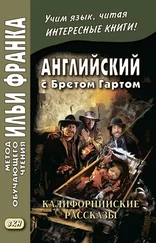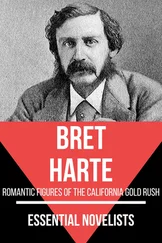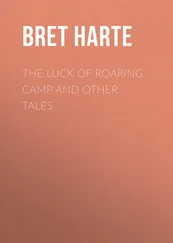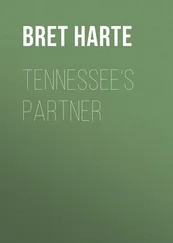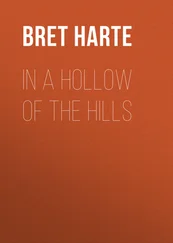Bret Harte - From Sand Hill to Pine
Здесь есть возможность читать онлайн «Bret Harte - From Sand Hill to Pine» — ознакомительный отрывок электронной книги совершенно бесплатно, а после прочтения отрывка купить полную версию. В некоторых случаях можно слушать аудио, скачать через торрент в формате fb2 и присутствует краткое содержание. Жанр: foreign_sf, literature_19, foreign_antique, foreign_prose, на английском языке. Описание произведения, (предисловие) а так же отзывы посетителей доступны на портале библиотеки ЛибКат.
- Название:From Sand Hill to Pine
- Автор:
- Жанр:
- Год:неизвестен
- ISBN:нет данных
- Рейтинг книги:4 / 5. Голосов: 1
-
Избранное:Добавить в избранное
- Отзывы:
-
Ваша оценка:
- 80
- 1
- 2
- 3
- 4
- 5
From Sand Hill to Pine: краткое содержание, описание и аннотация
Предлагаем к чтению аннотацию, описание, краткое содержание или предисловие (зависит от того, что написал сам автор книги «From Sand Hill to Pine»). Если вы не нашли необходимую информацию о книге — напишите в комментариях, мы постараемся отыскать её.
From Sand Hill to Pine — читать онлайн ознакомительный отрывок
Ниже представлен текст книги, разбитый по страницам. Система сохранения места последней прочитанной страницы, позволяет с удобством читать онлайн бесплатно книгу «From Sand Hill to Pine», без необходимости каждый раз заново искать на чём Вы остановились. Поставьте закладку, и сможете в любой момент перейти на страницу, на которой закончили чтение.
Интервал:
Закладка:
Bret Harte
From Sand Hill to Pine
A NIECE OF SNAPSHOT HARRY’S
There was a slight jarring though the whole frame of the coach, a grinding and hissing from the brakes, and then a sudden jolt as the vehicle ran upon and recoiled from the taut pole-straps of the now arrested horses. The murmur of a voice in the road was heard, followed by the impatient accents of Yuba Bill, the driver.
“Wha-a-t? Speak up, can’t ye?”
Here the voice uttered something in a louder key, but equally unintelligible to the now interested and fully awakened passengers.
One of them dropped the window nearest him and looked out. He could see the faint glistening of a rain-washed lantern near the wheelers’ heads, mingling with the stronger coach lights, and the glow of a distant open cabin door through the leaves and branches of the roadside. The sound of falling rain on the roof, a soft swaying of wind-tossed trees, and an impatient movement on the box-seat were all they heard. Then Yuba Bill’s voice rose again, apparently in answer to the other.
“Why, that’s half a mile away!”
“Yes, but ye might have dropped onto it in the dark, and it’s all on the down grade,” responded the strange voice more audibly.
The passengers were now thoroughly aroused.
“What’s up, Ned?” asked the one at the window of the nearest of two figures that had descended from the box.
“Tree fallen across the road,” said Ned, the expressman, briefly.
“I don’t see no tree,” responded the passenger, leaning out of the window towards the obscurity ahead.
“Now, that’s onfortnit!” said Yuba Bill grimly; “but ef any gentleman will only lend him an opery glass, mebbe he can see round the curve and over the other side o’ the hill where it is. Now, then,” addressing the stranger with the lantern, “bring along your axes, can’t ye?”
“Here’s one, Bill,” said an officious outside passenger, producing the instrument he had taken from its strap in the boot. It was the “regulation” axe, beautifully shaped, highly polished, and utterly ineffective, as Bill well knew.
“We ain’t cuttin’ no kindlin’s,” he said scornfully; then he added brusquely to the stranger: “Fetch out your biggest wood axe—you’ve got one, ye know—and look sharp.”
“I don’t think Bill need be so d–d rough with the stranger, considering he’s saved the coach a very bad smash,” suggested a reflective young journalist in the next seat. “He talks as if the man was responsible.”
“He ain’t quite sure if that isn’t the fact,” said the express messenger, in a lowered voice.
“Why? What do you mean?” clamored the others excitedly.
“Well—THIS is about the spot where the up coach was robbed six months ago,” returned the messenger.
“Dear me!” said the lady in the back seat, rising with a half hysterical laugh, “hadn’t we better get out before they come?”
“There is not the slightest danger, madam,” said a quiet, observant man, who had scarcely spoken before, “or the expressman would not have told us; nor would he, I fancy, have left his post beside the treasure on the box.”
The slight sarcasm implied in this was enough to redden the expressman’s cheek in the light of the coach lamp which Yuba Bill had just unshipped and brought to the window. He would have made some tart rejoinder, but was prevented by Yuba Bill addressing the passengers: “Ye’ll have to put up with ONE light, I reckon, until we’ve got this job finished.”
“How long will it last, Bill?” asked the man nearest the window.
“Well,” said Bill, with a contemptuous glance at the elegant coach axe he was carrying in his hand, “considerin’ these purty first-class highly expensive hash choppers that the kempany furnishes us, I reckon it may take an hour.”
“But is there no place where we can wait?” asked the lady anxiously. “I see a light in that house yonder.”
“Ye might try it, though the kempany, as a rule, ain’t in the habit o’ makin’ social calls there,” returned Bill, with a certain grim significance. Then, turning to some outside passengers, he added, “Now, then! them ez is goin’ to help me tackle that tree, trot down! I reckon that blitherin’ idiot” (the stranger with the lantern, who had disappeared) “will have sense enough to fetch us some ropes with his darned axe.”
The passengers thus addressed, apparently miners and workingmen, good humoredly descended, all except one, who seemed disinclined to leave the much coveted seat on the box beside the driver.
“I’ll look after your places and keep my own,” he said, with a laugh, as the others followed Bill through the dripping rain. When they had disappeared, the young journalist turned to the lady.
“If you would really like to go to that house, I will gladly accompany you.” It was possible that in addition to his youthful chivalry there was a little youthful resentment of Yuba Bill’s domineering prejudices in his attitude. However, the quiet, observant passenger lifted a look of approval to him, and added, in his previous level, half contemptuous tone:—
“You’ll be quite as well there as here, madam, and there is certainly no reason for your stopping in the coach when the driver chooses to leave it.”
The passengers looked at each other. The stranger spoke with authority, and Bill had certainly been a little arbitrary!
“I’ll go too,” said the passenger by the window. “And you’ll come, won’t you, Ned?” he added to the express messenger. The young man hesitated; he was recently appointed, and as yet fresh to the business—but he was not to be taught his duty by an officious stranger! He resented the interference youthfully by doing the very thing he would have preferred NOT to do, and with assumed carelessness—yet feeling in his pocket to assure himself that the key of the treasure compartment was safe—turned to follow them.
“Won’t YOU come too?” said the journalist, politely addressing the cynical passenger.
“No, I thank you! I’ll take charge of the coach,” was the smiling rejoinder, as he settled himself more comfortably in his seat.
The little procession moved away in silence. Oddly enough, no one, except the lady, really cared to go, and two—the expressman and journalist—would have preferred to remain on the coach. But the national instinct of questioning any purely arbitrary authority probably was a sufficient impulse. As they neared the opened door of what appeared to be a four-roomed, unpainted, redwood boarded cabin, the passenger who had occupied the seat near the window said,—
“I’ll go first and sample the shanty.”
He was not, however, so far in advance of them but that the others could hear quite distinctly his offhand introduction of their party on the threshold, and the somewhat lukewarm response of the inmates. “We thought we’d just drop in and be sociable until the coach was ready to start again,” he continued, as the other passengers entered. “This yer gentleman is Ned Brice, Adams & Co.‘s expressman; this yer is Frank Frenshaw, editor of the ‘Mountain Banner;’ this yer’s a lady, so it ain’t necessary to give HER name, I reckon—even if we knowed it! Mine’s Sam Hexshill, of Hexshill & Dobbs’s Flour Mills, of Stockton, whar, ef you ever come that way, I’ll be happy to return the compliment and hospitality.”
The room they had entered had little of comfort and brightness in it except the fire of pine logs which roared and crackled in the adobe chimney. The air would have been too warm but for the strong west wind and rain which entered the open door freely. There was no other light than the fire, and its tremulous and ever-changing brilliancy gave a spasmodic mobility to the faces of those turned towards it, or threw into stronger shadow the features that were turned away. Yet, by this uncertain light, they could see the figures of a man and two women. The man rose and, with a certain apathetic gesture that seemed to partake more of weariness and long suffering than positive discourtesy, tendered seats on chairs, boxes, and even logs to the self-invited guests. The stage party were surprised to see that this man was the stranger who had held the lantern in the road.
Читать дальшеИнтервал:
Закладка:
Похожие книги на «From Sand Hill to Pine»
Представляем Вашему вниманию похожие книги на «From Sand Hill to Pine» списком для выбора. Мы отобрали схожую по названию и смыслу литературу в надежде предоставить читателям больше вариантов отыскать новые, интересные, ещё непрочитанные произведения.
Обсуждение, отзывы о книге «From Sand Hill to Pine» и просто собственные мнения читателей. Оставьте ваши комментарии, напишите, что Вы думаете о произведении, его смысле или главных героях. Укажите что конкретно понравилось, а что нет, и почему Вы так считаете.

